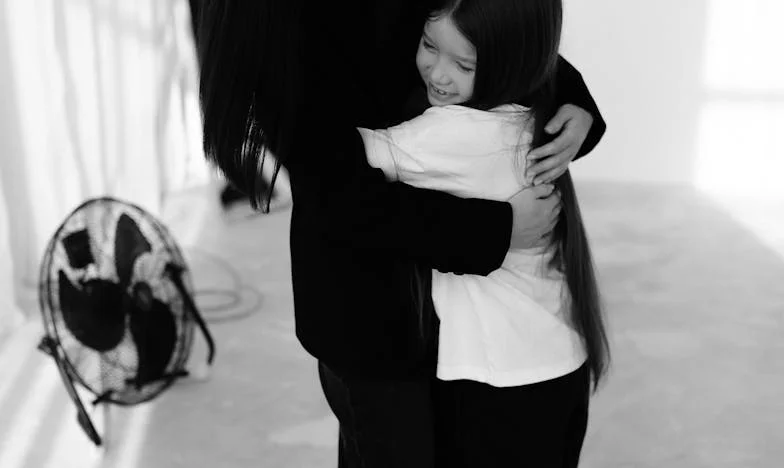Where the Heart Pauses – My First Night at the Farmhouse
“Joanna, could you help bring the casserole?” The voice echoed down the narrow, linoleum-floored hallway, but it wasn’t really a question. It was my new mother-in-law, Linda, and her tone made it clear: I was in her house now.
My hand trembled as I lifted the heavy Pyrex dish, the scent of creamed corn and ham making my stomach twist. My husband, Mark, was outside with his father, fixing a broken fence. I was alone with Linda and the shadows of their family’s past, ghosts I felt but couldn’t see.
I’d always thought of myself as adaptable. I grew up in Des Moines, the kind of place where you can get Thai takeout at 2 a.m., where the city lights make the night feel like day. Mark and I met at college—he was studying agriculture, I was majoring in English. We fell hard, fast, and recklessly in love. When he proposed, I pictured us in some sunlit apartment, not on a farm an hour from the nearest Starbucks.
But love does strange things. It makes you say yes to things you never imagined—like spending your first night at your in-laws’ farmhouse, where the silence outside is so thick it presses against your ears.
The kitchen was small, cluttered with mismatched mugs and a calendar from 2009. Linda watched me, arms folded. “You ever make a real casserole before?” she asked, her lips curled in a half-smile that didn’t reach her eyes.
“I’ve, um, followed recipes online,” I stammered, setting the dish on the counter. “But nothing like this.”
She chuckled, not unkindly, but with the air of someone who’s already decided something about you. “Not much use for quinoa out here,” she said, turning to the sink. I felt the barb sting—my city ways, my city food, my city self.
I stared at the steam rising from the casserole, trying not to cry. I wanted to be strong, to show Mark’s family that I belonged, but every word, every look, reminded me I was an outsider.
Dinner was a minefield. Mark’s father, Jim, asked about the city, his tone a mix of curiosity and suspicion. “Bet you don’t get much mud on your shoes in Des Moines,” he said, and everyone laughed, except me. Mark squeezed my hand under the table, but I could feel him tense, too.
Linda kept the conversation moving, but her eyes flicked to me when I hesitated over the gravy boat, or when I didn’t know the name of the neighbor she mentioned. The food was good, but I barely tasted it. I kept thinking about my mother’s kitchen, its chaos, the way we laughed over burned toast and mismatched plates.
After dinner, I offered to help clean up. Linda handed me a towel. “You’ll get used to it,” she said, scrubbing at a stubborn pot. “It takes time.”
I didn’t know if she meant the dishes or the farm, or maybe both. The silence between us was heavy. I felt a lump rise in my throat.
Later, in Mark’s childhood bedroom—plaid comforter, faded high school trophies on the shelf—I let the tears come. Mark sat beside me, taking my hands.
“Jo,” he whispered, “I know it’s hard. But they’ll come around. You just have to give them time.”
“I feel like I’m drowning,” I admitted. “Like I’ll never fit in here.”
He brushed a strand of hair from my face. “You don’t have to change who you are. But this is my family. I need you to try.”
I looked at him, really looked. I saw the boy I’d fallen in love with, but also the man shaped by this place—by its fields, its quiet, its unspoken rules. I realized I wasn’t just fighting for their acceptance. I was fighting for us.
That night, lying awake, I heard the house creak and settle. I heard cows lowing in the distance, the wind rattling the old windows. My phone buzzed—Mom, checking in. I wanted to text back, to tell her everything, to say I missed her. But I typed out, “All good. Love you,” and put it away.
The next morning, I woke before dawn to the smell of coffee and bacon. I found Linda at the stove, humming softly.
“Could you grab the eggs from the fridge?” she asked, not looking up.
I did, careful not to drop them. She nodded. “You’ll learn.”
I wanted to ask her—when did she stop feeling like an outsider here? Did she ever? But I bit my tongue.
After breakfast, Mark and I walked the fields. The sky was endless. I breathed in the cold, clean air, felt the mud suck at my boots. I listened as Mark talked about crop rotations, about the old barn that needed fixing. I tried to imagine a life here. Could I find my place, or would I always be the city girl, the outsider?
As we made our way back, Linda waved from the porch. Her face softened, just a little. Maybe she saw something different in me, or maybe she was just tired. I realized that acceptance wouldn’t come overnight. Maybe it never would. Maybe the lines between our worlds don’t disappear—they just blur, over time, with effort, with love.
That night, as I lay listening to the wind and the distant sounds of the farm, I wondered: How many of us spend our lives on the outside, waiting for someone to open the door? And what if the only way in is to knock, again and again, until someone finally lets you through?
